A history of the microcomputer industry in 300 adverts
In a private room at the Winter Consumer Electronics Show in Chicago in January 1977, Commodore showed the world's first complete "personal computer" - the PET 2001 - an "appliance" micro that for the first time could be taken out of the box, plugged in and used by regular people without a soldering iron.
Soon, Tandy and Apple joined in and the market grew steadily, but then Commodore and Sinclair launched cheap home computers in the early 80s that changed everything.
The market exploded from tens of thousands of machines a year to millions, as famous 1970s names like Cromemco, IMSAI, Nascom and MITS were swept away. Micro companies were suddenly worth $1 billion dollars and their employees were millionaires. Hundreds of companies launched hundreds of incompatible machines. Price wars were started, old scores were settled and companies were destroyed.
Eight bits made way for 16 and 32 in the space of a few years. For a while Britain led the world in manufacture and adoption, with 80% of all computers sold in Europe being sold in the UK.
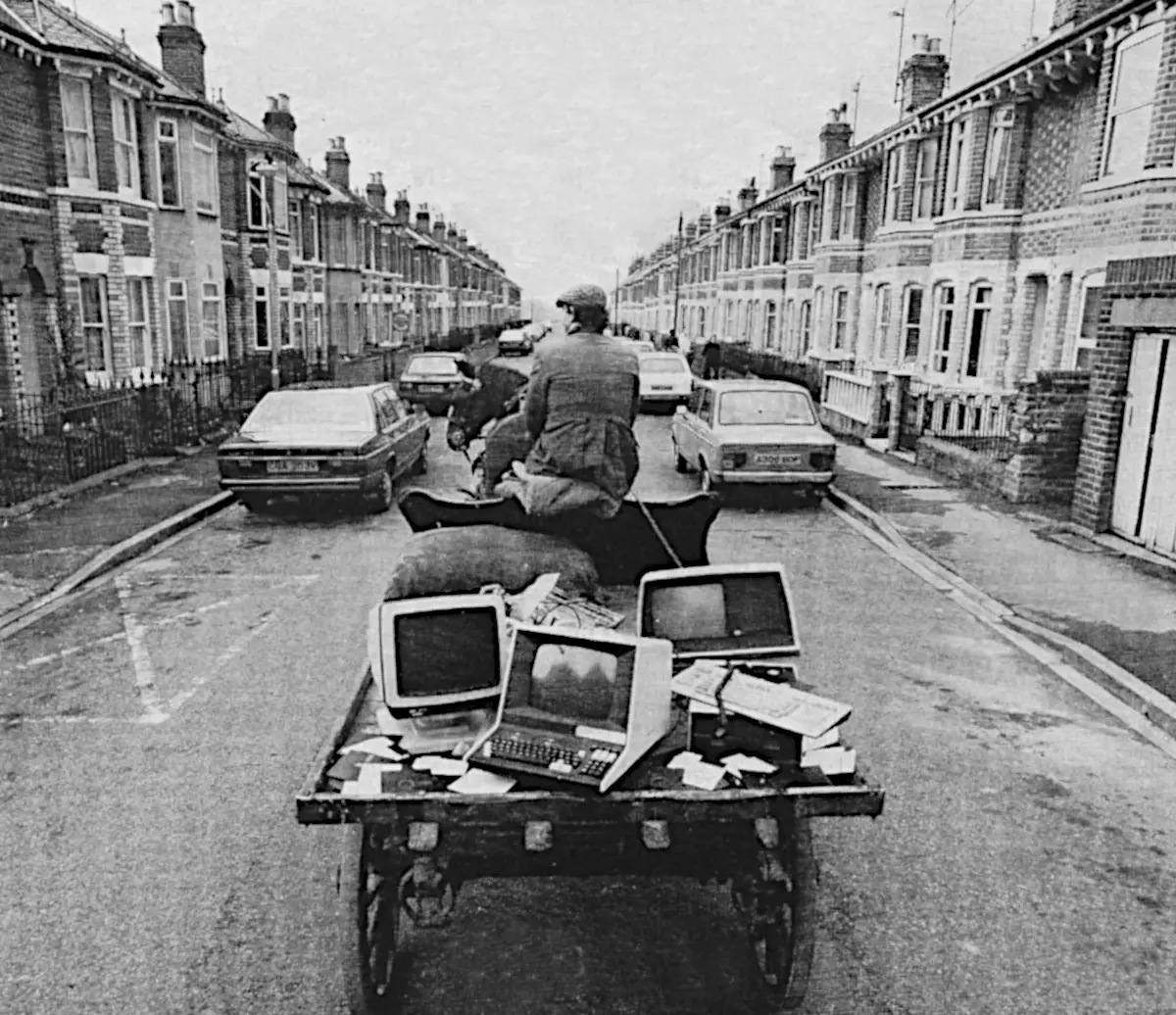
The fate of many microcomputer companies. From a Business Operating Software advert in Personal Computer World, June 1986.
Then the 8-bit market reached saturation and more companies imploded - Sinclair was sold for its name and assets only, Acorn almost didn't make it and a raft of also-rans fell by the wayside - Camputers, Dragon Data, Elan, Oric and Jupiter Cantab to name but a few. Even big names like Timex and Texas Instruments were burned.
Meanwhile, the sleeping giant that was IBM launched its 5150 at the end of 1981 and watched as it slowly but inevitably over the next few years became the standard. Other companies cloned it, copied and improved it and soon the only game in town was the IBM PC.
From the latter half of the 1980s, every micro company and its dog was building generic beige boxes, and people wanted the same beige boxes at home and work. The home computer as a concept was dead, and the "wonder years" were over.
This collection of over 300 adverts attempts to tell something of that story...
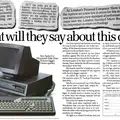
ACT/Apricot
June 1984
Apricot Xi: What will they say about this one?
Less than a year before Applied Computer Techniques, or ACT, changed its company name to that of its first computer - Apricot - comes this advert for its Xi model. ACT, which had...
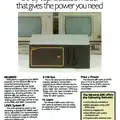
Hotel Microsystems
June 1984
Minstrel 68K - A truly sophisticated model that gives the power you need
This crossover advert takes March 1983's Z80-based Minstrel from Hotel Microsystems, replaces the Z80 with a Motorola 68000, rebrands the company as HM Systems and releases the ma...
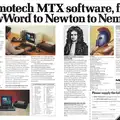
Memotech
June 1984
Memotech MTX Software: From NewWord to Newton to Nemo
Here's an attempt by Memotech to advertise itself as a software company, and to position its MTX512 as a dedicated word processing system - an approach that just a few years befor...
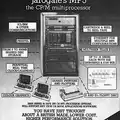
Jarogate
June 1984
If you are thinking of buying more than one PC - think again
It's another all-British (for a definition ignoring the fact that most of the chips came from the Far East or the US) multi-user system, this time from Jarogate of Brixton in Lond...
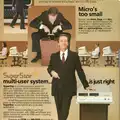
Bromcom
June 1984
SuperStar Multi-User System is Just Right
Bromcom - initially known as Bromley Computer Consultancy Ltd - launched its SuperStar multi-user system at the beginning of 1984. Running a 16-bit host processor with the compan...
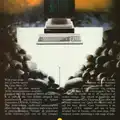
Casu Electronics
June 1984
Compact System for Professionals
Once mentioned in Parliament as one of only two British computer manufacturers on the government's Central Computer and Telecommunications Agency list of approved suppliers to hav...
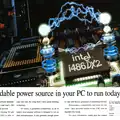
Intel
December 1993
The affordable power source in your PC to run today's games.
Intel didn't do a huge amount of advertising, seeming to prefer to allow word-of-mouth, or inertia, to do its selling. In the early 1970s, it had the hobbyist and microcomputer m...
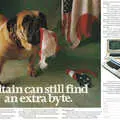
LSI
November 1982
Britain can still find an extra byte
Here's an advert from the curiously-named Computer Ancilliaries Limited, for what at first appear to be two of its machines - the British-built Caltext Word Processor and the Calt...
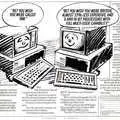
CAL
20th May 1983
CAL Personal Computer: Bet you wish you were called IBM
It's sometimes mistakenly given that the name of the intelligent computer in 2001 - HAL - is a dig at IBM, as it's every letter of that company's acronym shifted down one in the a...
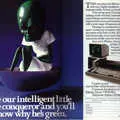
Durango
December 1982
Durango: See our intelligent little space conqueror and you'll know why he's green
This advert, which features a green Mekon - the alien character from British 1950s comic Dan Dare - is for one of the least computer-ey micros in the entire collection: the Durang...
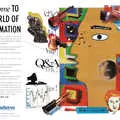
CompuServe
October 1990
Compuserve
It's been ten years since Compuserve launched the world's first online real-time chat service, the CB Simulator, and a couple of years since the "invention" of Internet Relay Cha...
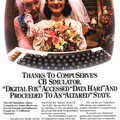
CompuServe
August 1984
Thanks to CompuServe's CB Simulator, 'Digital Fox' Accessed 'Data Hari' and Proceeded to an 'Altared' State
Probably like the 1960's generation liked to think it invented sex, today's "yoof" probably like to assume that they invented "on-line", however it was not so, as shown by this ad...
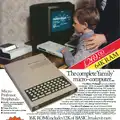
Multitech
May 1983
Micro-Professor: The 64K Computer That Spans Generations
First launched in 1982, the Micro-Professor MPF II was Multitech Corporation's update to its earlier MPF1 machine, although this time it was aimed more at the home and Apple II ma...
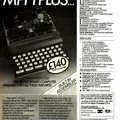
Multitech
November 1983
The new MPF1 Plus - The lowest-cost Z80 computer with all these features!
The Microprofessor MPF-1 Plus was a redesigned version of the original MPF-1, originally released by Multitech Industrial Corporation in the summer of 1982. Its launch came after ...
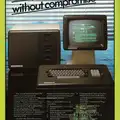
Quantum
May 1983
Computerise without compromise: Quantum QM 2000
This is short-lived advert from Leed's-based Quantum Computer Systems Limited, for its new all-British Quantum 2000 microcomputer, where the definition of "all British" is somewha...